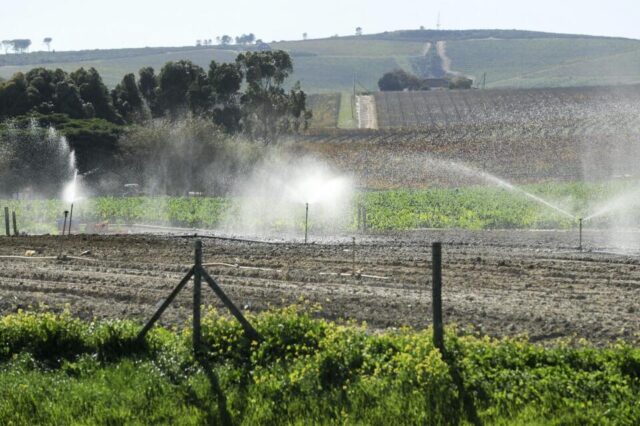Eskom is trying to isolate farming communities from residential ones in scheduling load shedding to allow for irrigation and food production as the threat to food security looms large.
ESKOM is trying to isolate farming communities from residential ones in scheduling load shedding to allow for irrigation and food production as the spectre of the threat on food security looms large, the ministerial task team comprising think tanks, agricultural organisations and the Department of Agriculture, Land Reform and Rural Development told Parliament.
The task team, chaired by the department’s director-general, Mooketsa Ramasodi, has a short-term game plan to allow for the reconfiguration of the power network so as to allow for the isolation of farms to enable an adequate supply of power to stave off the interruptions with minimal load curtailment.
The task team will review the schedule to allow farmers to irrigate at critical times such as in the evenings and early morning, allow municipalities to do their own switching to accommodate farmers as well as to look into the installation of micro grids, solar panels and battery containers for critical loads, especially during critical times such as harvesting, irrigation and refrigeration.
In the medium- to long-term, the task team is looking at the building of infrastructure for a dedicated supply or isolation of farmers, giving priority to the installation of smart meters on critical feeders supplying farmers and the diversification of power production, including tapping onto the 700 megawatts (MW) of biogas from the sugar cane industry.
Agricultural Business Chamber of South Africa economist Wandile Sihlobo told the department: “The exclusion of farmers from load shedding has been discussed. The exemption of farmers depends on the ability to separate their lines from the grid, but Eskom has made it abundantly clear that it is highly unlikely for that to happen.”
However, responses from Eskom to the task team ranged on further engagement to break the impasse but offered no concessions from the power utility for special treatment as the spectre of higher stages of load shedding loom
Agriculture, Land Reform and Rural Development Minister Thoko Didiza said Eskom was open to engagement and had requested provincial farmer structures to explore possibilities, even though it made it clear that the isolation of the agricultural communities was a no-go area because of infrastructural difficulties.
The utility would instead look at the possibility of establishing micro grids in farmer-concentrated areas.
According to the task team’s analysis, if the power crisis is not averted it could impact a sector that employs roughly 975,000 people, with R332 billion in turnover.
Dr Sifiso Ntombela, the chief economist at the Agricultural Marketing Council, said the energy crisis presented a food security risk requiring the government to call for a properly planned load shedding approach in agriculture and food processing.
“With nearly half of the agricultural income dependent on irrigation, this means that a similar share of jobs are at risk with the agricultural workforce of about 860,000 jobs in the sector,” he said.
Meanwhile, Sihlobo said thus far, trials of curtailment, where farmers used only a maximum of 70% of regular supply of electricity during normal hours and then were exempted from load shedding, was already being tried in Gauteng and the Free State.
Sihlobo said the sector spent more than R10bn a year on fuel and more than R7bn on electricity per year.
Also mitigating the sector’s financial distress were the interventions announced by Finance Minister Enoch Godongwana in the Budget speech last week, which included a 125% reduction in taxable income for investments in renewable energy over the next two years, the introduction of a 25% rebate on installation of solar panels to the maximum of R15,000, changes to the bounce-back loan guarantee scheme for solar-related funding to be launched by National Treasury in April, benefits from the Just Energy Transition and refunds from the Road Accident Fund levy for diesel used in the manufacture of food.
– BUSINESS REPORT








